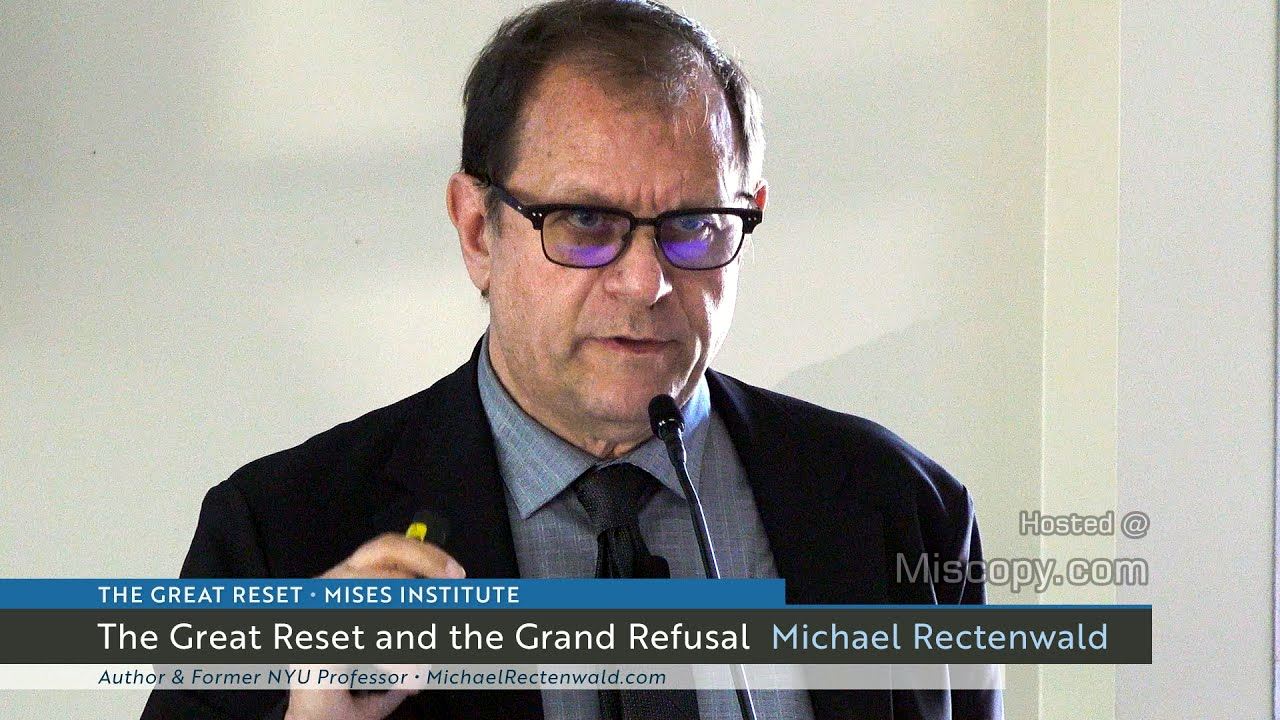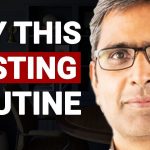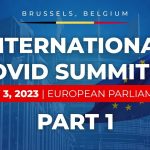Michael Rectenwald is an American scholar, author, and former professor of Liberal Studies at New York University. Rectenwald rose to prominence in 2016 after he created a Twitter account named “Deplorable NYU Prof” and began publicly criticizing what he saw as the increasing intolerance and censorship on college campuses.
His criticisms of “woke” culture and cancel culture garnered him a significant following on social media and led to appearances on various media outlets, including Fox News and The Joe Rogan Experience podcast. Rectenwald is the author of several books, including “Springtime for Snowflakes: ‘Social Justice’ and Its Postmodern Parentage” and “Beyond Woke.”
In the video, Michael Rectenwald discusses the Great Reset and the potential conspiracy theories surrounding it. He highlights that the World Economic Forum (WEF) promotes digital biometric surveillance identity systems and has pushed young global leaders into major roles in managing the COVID-19 crisis, which has led to a pandemic narrative that suggests the crisis may have been staged by global elites to serve as an alibi for instituting the Great Reset.
Rectenwald also discusses the economic system that globalists want to establish, which they call stakeholder capitalism, and argues that it is a form of corporate socialism. He provides a “grand refusal” plan to combat the Great Reset, which includes divesting from ESG stocks and asset managers and pressuring the government to stop funding organizations such as the WEF, United Nations, and World Health Organization.
00:00:00
In this section, Michael Rectenwald addresses whether the idea of the Great Reset is simply a conspiracy theory. He notes that while some sources, such as the New York Times and the BBC, claim that the Great Reset is a benign effort to bring about a fairer, greener future, Time Magazine has devoted an entire issue to it, hailing it as the solution to all our problems.
Michael Rectenwald also suggests that the World Economic Forum generates conspiracy theories on purpose to discredit their critics in advance. The history of the Great Reset begins with Richard Florida’s book in 2010, which inspired Klaus Schwab to push the reset button in 2014. The WF then participated in two pandemic simulations (Clade X and Event 201) prior to the outbreak of COVID-19, which led to a coordinated global response eerily similar to the simulation scenarios.
00:05:00
In this section, Michael Rectenwald discusses the simulations done before the COVID-19 pandemic, such as the Clade X and Event 201, which anticipated every aspect of the crisis, including worldwide lockdowns, the collapse of businesses and industry, widespread riots, and the adoption of biometric surveillance technologies.
These simulations, along with the World Economic Forum’s (WEF) involvement in promoting digital biometric surveillance identity systems and pushing young global leaders into major roles in managing the COVID-19 crisis, have led to a pandemic narrative that suggests the crisis may have been staged by global elites to serve as an alibi for instituting the Great Reset.
The WEF’s partnership with the UN to advance Agenda 2030, sustainable development goals, and its commitment to help the UN meet the needs of the fourth industrial revolution, including government by algorithms and AI, are also highlighted.
00:10:00
In this section, Michael Rectenwald discusses the history of globalist organizations such as the Trilateral Commission and their push for a global agenda. The Great Reset, which is a reset of various domains of human life including economic, environmental, geopolitical, industrial, technological, social, and individual, is an outline of the kind of things they want to reset.
The economic system they want to usher in is called stakeholder capitalism, which is a euphemism for a collusion between the government, state, and corporate world that establishes a cartel shared Monopoly scheme. The world economic Forum has signed on 1,000 of the world’s top corporations in all major sectors of the economy, and they are all firmly behind this agenda, including major players like BlackRock Inc.
The stakeholder capitalism regime has its main mechanism, the ESG score, which Schwab likens to Dr. Evil, and companies that don’t get on board with the sustainability ESG stakeholder regime will be starved with capital and die on the vine.
00:15:0
In this section, Michael Rectenwald discusses the economic system that globalists want to establish, which they call stakeholder capitalism. He explains that socialists believe that stakeholder capitalism is a form of socialism, specifically corporate socialism, which is the monopolization of the economy by a group of monopolists who want to eliminate their competition and retain complete and total control over the rest of the economy.
Rectenwald argues that the Chinese system is the model for the Great Reset, as it still maintains for-profit production by oligarchs, total control over the population, a great surveillance structure, and generates wealth for the few. He believes that globalists want to establish this system globally.
00:20:00
In this section, Michael Rectenwald discusses the Great Reset in relation to China and public-private partnerships. He claims that the Great Reset is drawing corporations into the state and making them state apparatuses, with examples such as Twitter and Google.
He mentions the Fourth Industrial Revolution, which he argues represents high-tech surveillance and control of the population at large. Rectenwald highlights that the Great Reset promises inclusion in a shared destiny, but this inclusion represents the subordination of netizens, who will experience total political and economic disenfranchisement and hyper-vigilance over themselves and others, resulting in organized loneliness.
00:25:00
In this section, Michael Rectenwald provides a nine-point plan, which he calls “the grand refusal,” to combat the Great Reset. The plan includes refusing the central bank digital currency, internet of bodies, and digital identity, practicing the free market, divesting from ESG stocks and asset managers, and pressuring the government to stop funding organizations such as the World Economic Forum, United Nations, and World Health Organization.
Rectenwald acknowledges that it may not be possible to reverse the global agenda on our own, but we can become a Remnant that promotes the principles of the free market and individual freedom to future generations.
00:30:00
In this section, Michael Rectenwald suggests putting pressure on legislators to move pensions and other funds away from ESG asset managers, and encouraging defections from the elites. Elon Musk is cited as a possible defector from ESG and a nominal supporter of free speech.
Rectenwald calls for a grand refusal against revolutionary subversive elites who are wrecking society, and emphasizes the need for counter-revolution against their objectives. He concludes by rejecting the utopian and striving for continuity and sanity.





Leave a Reply